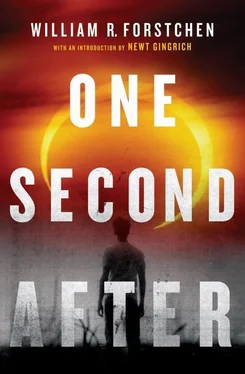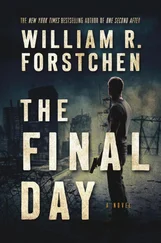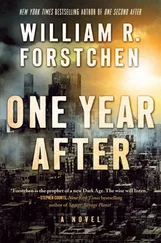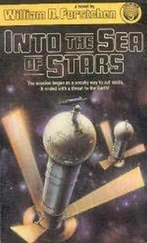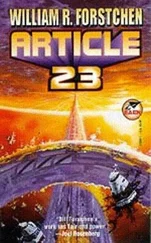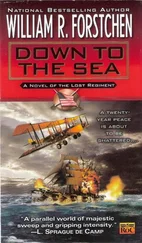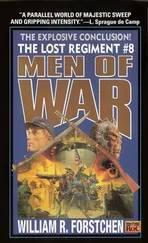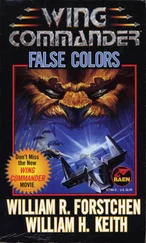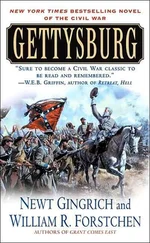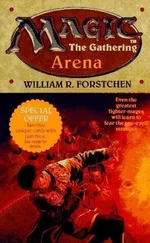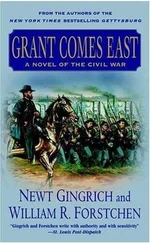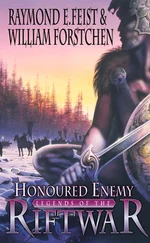“Dad, Uncle Bob wants you!”
Jennifer came out of her bedroom, holding up the phone. John took it, gave her a quick peck on the top of her head and a playful swat as she ran back off. Seconds later the damn stereo in her room doubled in sound.
“Yeah, Bob?”
“John, I gotta run.”
He could sense some tension in Bob’s voice. He could hear some voices in the background… shouting. It was hard to tell, though; Jennifer’s stereo was blaring.
“Sure, Bob. Will you be down next month?”
“Look, John, something’s up. Got a problem here. I gotta—”
The phone went dead.
At that same instant, the ceiling fan began to slowly wind down, the stereo in Jennifer’s room shut down, and looking over to his side alcove office he saw the computer screen saver disappear, the green light of the on button on the nineteen-inch monitor disappearing. There was a chirping beep, the signal that the home security and fire alarm system was off-line; then that went silent as well.
“Bob?”
Silence on the other end. John snapped the phone shut.
Damn, power failure.
“Dad?”
It was Jennifer.
“My CD player died.”
“Yeah, honey.” Thank God, he thought silently. “Power failure.”
She looked at him, a bit crestfallen, as if he were somehow responsible or could snap his finger to make the CD player come back on. Actually, if he could permanently arrange for that damn player to die, he would be tempted to do it.
“What about my party? Pat just gave me a CD and I wanted to play it.”
“No worry, sweetie. Let me call the power company. Most likely a blown transformer.”
He picked up the landline phone… silence, no dial tone.
Last time that happened some drunk had rammed into a telephone pole down at the bottom of the hill and wiped everything out. The drunk of course had walked away from it.
Cell phone. John opened it back up, started to punch numbers… nothing.
Damn.
Cell phone was dead. He put it down on the kitchen table.
Puzzling. The battery in his phone must have gone out just as Bob clicked off. Hell, without electricity John couldn’t charge it back up to call the power company.
He looked over at Jennifer, who stared at him expectantly, as if he would now resolve things.
“No problem at all, kid. They’ll be on it, and besides, it’s a beautiful day; you don’t need to be listening to that garbage anyhow. Why can’t you like Mozart or Debussy the way Pat here does?”
Pat looked at him uncomfortably and he realized he had committed one of the mortal sins of parenting; never compare your daughter to one of her buddies.
“Go on outside; give the dogs a run. They’ll have the power back by dinnertime.”
DAY 1, 6:00 P.M.
Flipping the four burgers on the grill, two for himself, one each for Jennifer and Pat, he looked over his shoulder and watched as the girls played tag with the dogs in the upper field behind his house. It was a beautiful sight, late afternoon sun, the eight apple trees in full blossom, the girls laughing as they dodged back and forth. Ginger, the younger and crazier of the two goldens, knocked Jennifer over with a flying leap as she tried to hold a Frisbee out of her reach, and there were more squeals as the two dogs and two girls piled on each other.
Months ago he had stopped wearing a wristwatch; the cell phone was now his timepiece. He looked through the kitchen window to the grandfather clock; it was just about six. The other kids should have been here by now; the agreement was they could come over for a brief party, but as it was a school night, the party would be over by 7:30. No one had shown yet. For that matter, he thought Jen would have been back long ago.
He lit a cigarette, puffing quickly—it was amazing how annoying a twelve-year-old could be when it came to a “quit smoking, Dad” campaign—and tossed the half-smoked Camel over the patio railing.
Burgers done, he set them on the patio table, went in, opened the fridge, pulled out the cake, and set it on the table, sticking twelve candles in.
Back out again to the deck.
“Dinner!”
The dogs responded long before the girls, racing out of the field, circled
the table, and then sat at their usual begging positions. Pat and Jennifer came out of the field.
“Hey, Dad, something strange.”
“Yeah?”
“Listen.”
He stood there silent for a moment. It was a quiet spring evening, silent except for a few birds chirping, the distant bark of a dog… rather nice, actually.
“I don’t hear anything.”
“That’s it, Dad. There’s no traffic noise from the interstate.”
He turned and faced towards the road. It was concealed by the trees… but she was right; there was absolute silence. When he had first purchased the house, that had been one disappointment he had not thought of while inspecting it but was aware of the first night in, the rumble of traffic from the interstate a half mile away. The only time it fell silent was in the winter during a snowstorm or an accident.
“An accident must of shut it down,” he replied.
It was common enough, the long winding climb up from Old Fort; every month or two a truck would lose its brakes and roll or old folks in a forty-foot-long land yacht would lose it on the twisting turns as the highway zigzagged out of the mountains and down to the Piedmont. One such accident, a hazmat spill with a truck rolling over, had shut down traffic in both directions for over a day.
“Mr. Matherson. That’s what we thought, but it’s weird down there. No traffic jam, just cars stopped all over the place. You can see it from atop the hill.”
“What do you mean?”
“Just that, Daddy. A bunch of cars, a lot on the side of the road, some in the middle, but no jam up, just everyone stopped.”
He half-listened, while shoveling the burgers onto buns and putting them on the girls’ plates.
“Most likely the accident’s further on and people were told to pull over and wait,” he said.
The girls nodded and dug in. He ate his first burger in silence, saying nothing, just listening. It was almost eerie. You figure you’d hear something, a police siren if there was indeed an accident, cars down on old Highway 70 should still be passing by. Usually if the interstate was closed, emergency vehicles would use 70 to access the highway and it would be jammed with people trying to bypass the interstate. At the very least this was the time of night the darn Jefferson kids, up at the top of the hill, would start tearing around into the forest with their damn four-wheelers.
And then he looked up. He felt a bit of a chill.
This time of day any high-flying jets would be pulling contrails, and directly overhead was an approach corridor to Atlanta for most flights coming out of the northeast. At any given time there’d be two or three planes visible. Now the sky was sparkling blue, not a trace of a contrail.
The chill… it reminded him of 9/11. How quiet it was that afternoon, everyone home, watching their televisions, and the sky overhead empty of planes.
He stood up, walked to the edge of the railing, shaded his eyes against the late afternoon sun. Up towards Craggy Dome there was a fire burning, smoke rising vertical, half a dozen acres from the look of it. Another fire raged much farther out on the distant ridge of the Smokies.
In the village of Black Mountain, nothing seemed to be moving. Usually, before the trees filled in completely, he could see the red and green of the traffic light at the intersection of State and Main. It was off, not even blinking.
He looked back at the grandfather clock. It was usually this time of day that the “million-dollar train” came through, so named because it hauled over a million dollars’ worth of coal, mined out of Kentucky for the power plants down near Charlotte. When the girls were younger, an after-dinner ritual was to drive down to the tracks and wave to the engineer as the five heavy diesel-electric locomotives, thundering with power, pulled their load and crawled towards the Swannanoa Gap tunnel.
Читать дальше
